Women pastors
from 1900 to 1960
Women started being pastors as the general movement for emancipation appeared towards the end of the 19th century, and as young women were accepted in universities. Then the need to replace men during both World Wars emphasized it.
Writings as an obstacle and a support
In protestant theology women were not forbidden to be heard according to the universal ministry doctrine “all of us are priests, provided we are Christians “Luther said in 1520. His claim also meant that priesthood was not sacred, “priesthood being just a ministry” (meaning service). But the introduction of women was against the Scriptures, especially in Paul’s Epistles where they are confined to their traditional role.
One aspect of Protestantism however was in favour of women, namely the right to read and write, meaning enough education to be considered responsible ; so that when society had finally evolved, they were ready to step in. The 1905 law, for the foundation of cultural organisations, helped women as they were allowed to vote in their parishes.
In Alsace first
On 23 March 1930 for the first time a woman was ordained. Her name was Berthe Bertsch and it occurred within the Alsace and Lorraine Reformed Church. Why there ?
Because during WWI women had to work to replace men, in factories as well as in post-offices. There were known cases of pastors’ wives who replaced their drafted or departed husbands, but still fulfilled their duties towards the children, the sick, and even presided over funeral and baptism services.
Because the first female students were allowed in the faculty of theology, long after other subjects. In the early 1920s there were only 4 young women in the Strasburg faculty, along with one in Geneva, both belonging to State Universities. Then came Paris where Marguerite Thourot got her Bachelor’s degree in theology (equivalent to a Master’s) in 1933.
Substitutes
Women were needed to make up for the lack of men due to the war. “Order, good behaviour, honour, require that women should stop talking when a man speaks ; but when no man speaks, women should preach” Luther wrote in 1521, which sums up the way churches considered women during the first half of the 20th century. Women were definitely needed but were kept to their traditional activities, such as catechism, deaconry, and preaching only if need be.
But women were obstinate. They were qualified, proved their abilities in parishes, where the Church appointed them. They worked.
Bound to celibacy
What were the arguments against women pastors ? They could not speak loud enough, did not have enough authority either to preside over a church council, or to coordinate its actions. They could not keep a secret…
Still it was mostly because of engrained traditions, though there were some cultural variations too. For instance Lutheran and Reformed Churches in Alsace and Lorraine (ECAAL and ERAL) accepted women pastors before France did, except for the Montbéliard region where Geneviève Jonte was ordained as early as 1937.
Churches had to find a way to meet the need without upsetting traditions. Women indeed, but only single or widowed ones were allowed to play a secondary role.
To assert their authority, pioneer women had masculine, assertive manners. They were described as wearing ugly dark clothes and had to be determined to bear people’s comments. We can imagine what the then 27 years old Elisabeth Schmidt was confronted with when she arrived in a Cévennes valley from the city in 1935.
Pioneer women
- * Elisabeth Schmidt (1908-1986) embodied the fight for women pastors within the French Reformed Church. She was the daughter of a Member of Parliament and studied philosophy at the Sorbonne in Paris and then theology in Geneva. From 1935 to 1941 she was assistant with the Saint Croix Vallée Française parish in the Cévennes region and then in Sète until 1958. The parishioners themselves asked for her ordination.
- * Geneviève Jonte (1906-1983), was the daughter and grand-daughter of the Montbéliard region pastors. She studied theology in Paris, then was an assistant with the Montbéliard parish in 1934, and was eventually ordained in 1937. She was the first pastor of the small Saint John temple the Peugeot family had paid for and built in the new workers’ quarters – it was later demolished when the Peugeot Company needed the land.
- * Marieleine Hoffet (1905-1996) was a pastor’s daughter who studied theology in Strasburg, Geneva and Edinburgh. She was a vicar with the Reformed Church of Alsace Lorraine and got married in 1931. She took an active part in the resistance movement and accepted in 1945 a position no one wished to take, namely chaplain in former collaborators’ internment camps. She then turned to women’s bible teaching. She fought against the rule forbidding married women to become pastors, which was suspended in 1968.
- * Jeanne Zurcher (born in 1917). Her father was of Swiss origin and her mother was American. She had an early calling which her family refused. She started her theology studies in Geneva and completed them in Paris. She was an assistant with the Etoile Reformed Church in Paris, with the Mission Populaire (Working class Mission) in the suburbs, and then with the Evangelical Lutheran Church. When she was 58 she was ordained at the Suresnes parish near Paris.
These pioneer women were from the upper classes or from pastoral backgrounds.
They did not belong to women’s emancipation movements. They were not promoted by their churches – peer pastors sometimes even voted against them. But their parishes appreciated their competence and listening skills, and mostly their calling.
Assistants or pastor-helps
Pastor-help-ladies in Alsace Lorraine churches, assistants in parishes belonging to the French Churches, had a rather indefinite status, except concerning celibacy. Their teaching and deaconry activities made them ask for training in social and family assistance, as well as in theology. A “school for female ministers” offering a three-year social education course was available at the Reuilly Deaconesses’ centre in Paris between 1946 and 1950. In the 20s and 30s they were exceptionally allowed to preach, but their preaching abilities were gradually acknowledged.
Whenever it was possible they were sent to parishes with several positions, to help a pastor. They were autonomous as chaplains and worked like the other pastors, but were only paid 70% of the salary within the ERF and 50% within the EELF, though they were normally lodged. Getting married definitely put an end to their activity, but divorced women could be admitted !
Bibliography
- Books
- LAUTMAN Françoise, Ni Eve, ni Marie, Labor et Fidès, Genève, 1997
Associated tours
-
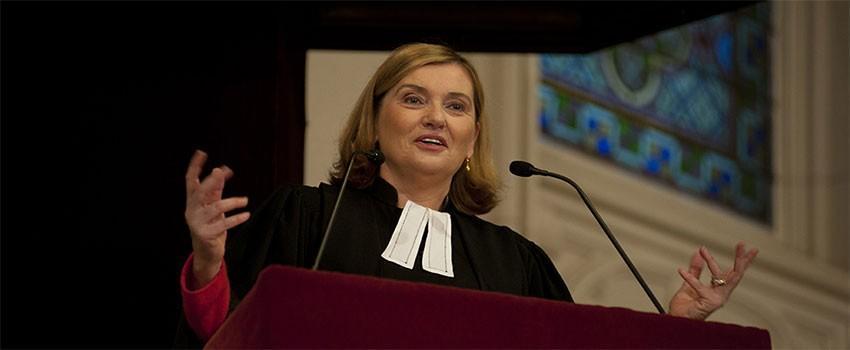
The role of women in Protestantism
From the “good” woman of Proverbs to the woman citizen
Associated notes
-
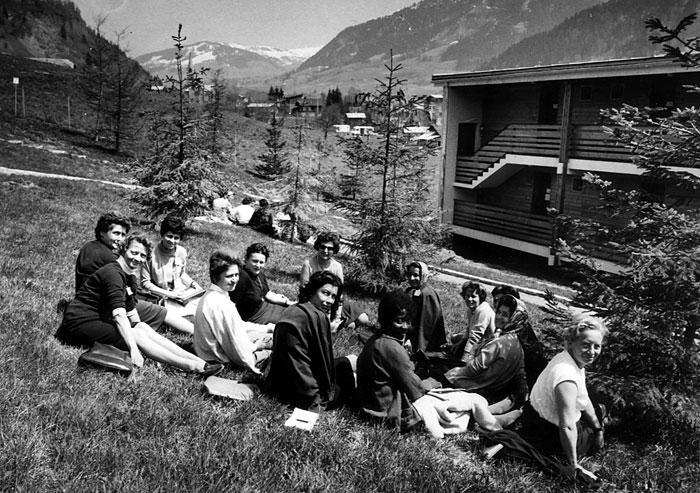
The Young Women's Movement (Mouvement Jeunes Femmes)
The Young Women’s Movement (Mouvement Jeunes Femmes) came into being when, at the congress of the « Young Women’s Christian Association » (Unions Chrétiennes de Jeune Filles) in 1946, some of the... -
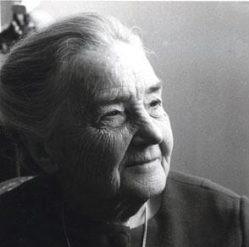
Suzanne de Dietrich (1891-1981)
Born into a Lutheran-Reformed Alsatian family, Suzanne de Dietrich, after having completed engineering studies, became passionately involved in Bible study, with very demanding requirements and openings towards ecumenicalism. -
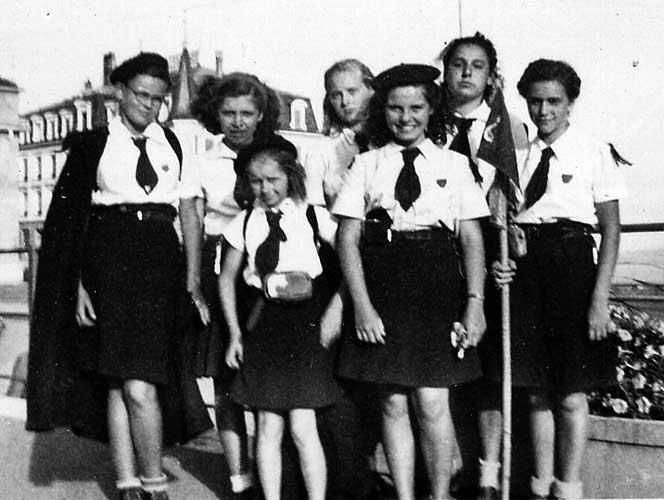
Scouting and women
After the English example female scouting was created with a view to training and managing young women. In 1920 the creation of the Fédération Française des Eclaireuses (FPE – French... -
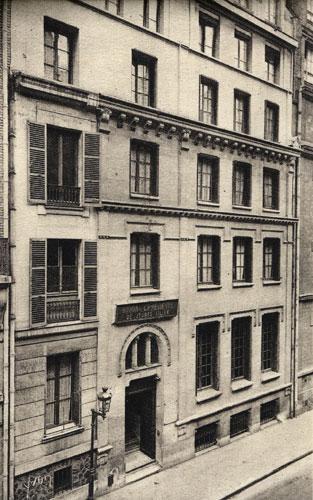
Young Women Christian Unions (UCJF)
Young Women Christian Unions were closely linked to the Revival movement. They were simultaneously created during the first half of the 19th century in Great Britain and in the United... -
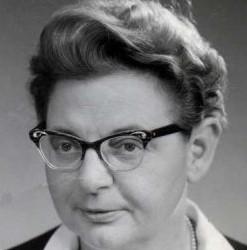
Madeleine Barot (1909-1995)
A woman passionately engrossed in helping her fellow human beings and spreading Protestantism.
